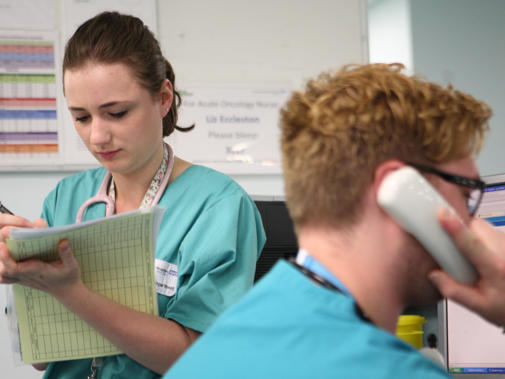Under the pay protection deal, junior doctors employed by this lead employer will be financially compensated if they can demonstrate that they suffered a loss owing to the pause in rotations.
As one of the larger lead employers in the NHS, it handles payroll for some 10,000 trainees across the country.
BMA north-west regional junior doctors committee deputy chair Mike Kemp said he hoped the agreement would set a precedent for fair pay for trainees whose pay packets were hit by the pause.
‘They’ve recognised that unprecedented circumstances meant that some trainees were being financially disadvantaged due to something entirely outside of their control,’ he added.
Stuck in post
Health Education England announced the pause to rotations mid-March – just weeks before trainees were due to take up new posts. This meant that many trainees were unable to move to new posts, some of which would have attracted a higher salary through out-of-hours commitments, intensity payments and other enhancements.
Many had already been issued with work schedules, indicating how much they would have been paid in these posts, and were making preparation and decisions based on this.
The 2016 junior doctors’ contract protects pay when changes are made to rotas by employers once they are in post, but does not do so before they enter the placement. There is no provision to manage the unprecedented situation of an entire junior workforce failing to rotate,
especially so last minute, and the potential financial implications this has on the affected doctors. It is for this reason that the agreement was needed and welcomed by those affected.
Basic pay boost
Dr Kemp, a neurology specialty trainee 4, said enhancements in some posts could amount to an additional 20 to 30 per cent on basic pay. Trainees who rotated through posts with different intensities in their working patterns could see the biggest change in their incomes and as a result of this arrangement could receive backpay of up to several thousands of pounds.
While some trainees would have received a higher salary by staying on in posts which had more on-calls and additional hours, many saw a significant drop in their expected income over the year.
‘If they were expecting to go back into a setting with out-of-hours work in April, their pay would have gone up significantly,’ said Dr Kemp.
‘They might have financially planned for that income, particularly if they had a mortgage. It was random whether you gained or lost from the pause,’ Dr Kemp added. ‘This introduced an element of unfairness. This agreement ensure that fairness is preserved.’
BMA industrial relations officer Joanne Alliston described the pay protection agreement as a ‘good example of partnership working’.

